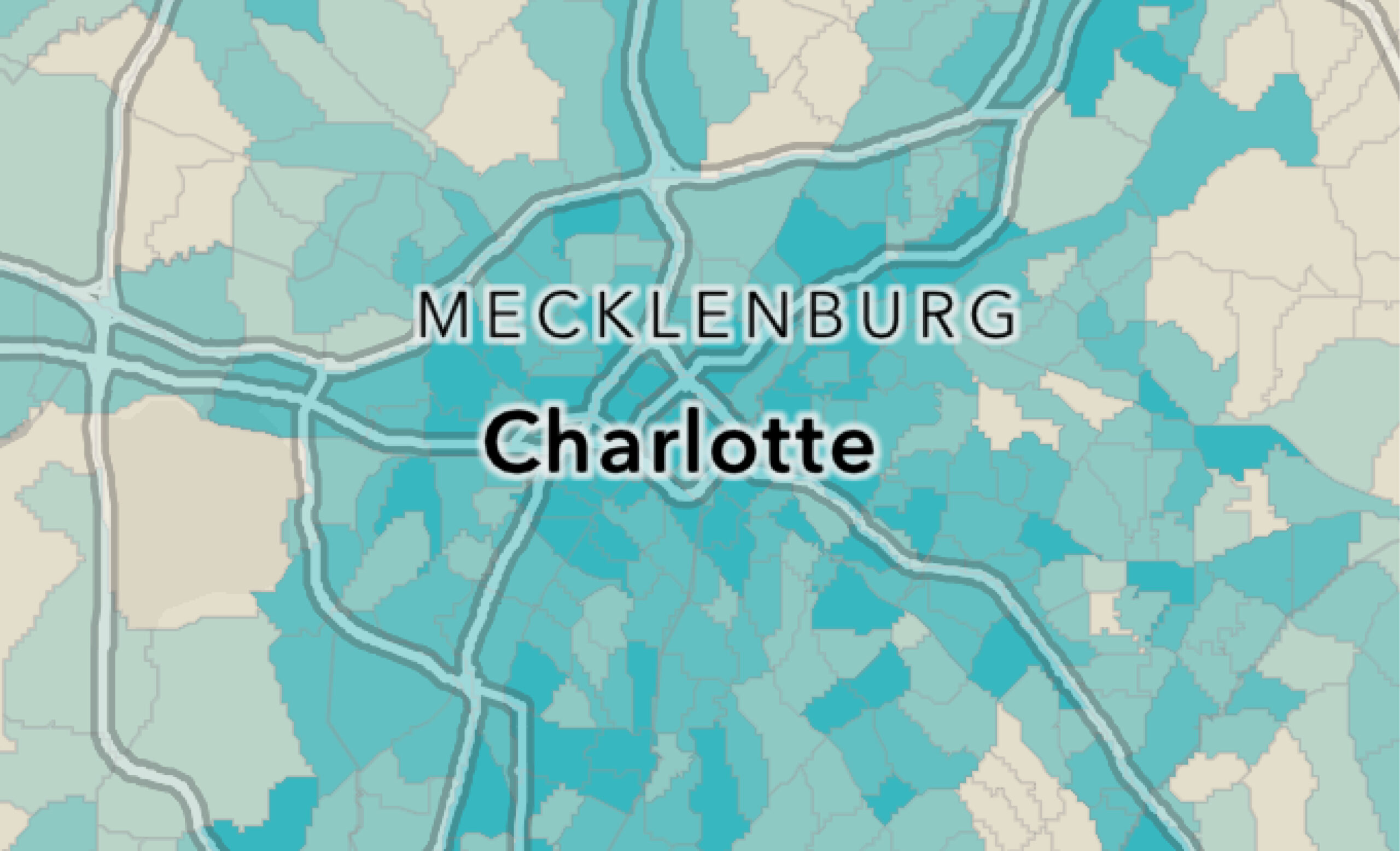Charlotte

Homelessness in Mecklenburg County has increased by more than 40% since 2020. To respond to this great need, together with a group of intrepid leaders in the real estate and social services sector, we began piloting our Landlord Participation Program in 2018. To date, we have more than a dozen partners and are rapidly approaching 500 individuals stably housed in the area and 97% of them have gone on to house themselves independently. Now we have proven this model works, we plan to continue to rapidly scale up the number of individuals we are able to house and continue to position Charlotte as a national leader in solving homelessness. By 2025, with the help of our supporter community, we anticipate increasing the number of people housed by 35 percent.
Neighborhoods of Opportunity
In the following map, we showcase where our current partner properties are throughout the Charlotte area. We call these areas Neighborhoods of Opportunity.
We understand not every roof is created equal. That’s why Lotus Campaign is intentional with where it facilitates housing. It is a key differentiator of our model that understands solving homelessness must be holistic. The housing that those who have recently been homeless can afford — either on their own or with some assistance — is often in already marginalized communities with high levels of poverty. This presents additional barriers as individuals attempt to rebuild their lives and increases the likelihood they remain in the cycle of homelessness.
In contrast, Lotus partners with landlords with communities close to public transportation, walkability, schools, major employers, and grocery stores. See the right side of our map for all the inputs into what allows us to identify a Neighborhood of Opportunity, where our sponsored residents have the greatest chance of rebuilding their lives. The importance of the proximity of these elements cannot be overstated.

To see live data please view on desktop.
Index of Indicators
Lotus Campaign Properties: Properties owned and managed by participating landlords where Lotus Campaign facilitates housing within its Landlord Participation Program.
Other Public Housing Opportunities: Properties in Lotus pilot communities that are either LIHTC (Low Income Housing Tax Credit) properties or local housing authority properties.
Bus and Transit Stops: Opportunities for sponsored residents to use public transportation to travel to and from work, schools, and grocery stores.
Employment Density: The number of jobs available within a certain radius or land area.
EPA Smart Location Score: The EPA’s Smart Location Calculator is a “dataset and interactive tool that measures the location efficiency of workplace locations.”
Social Vulnerability Index: According to the Center for Disease Control, “Social vulnerability refers to the potential negative effects on communities caused by external stresses on human health. Such stresses include natural or human-caused disasters, or disease outbreaks. Reducing social vulnerability can decrease both human suffering and economic loss.”
% of Black or African American: The percentage of people identifying as Black or African American.
Median Household Income: A median household income is the middle income in a list of incomes in a household.
Land Use Mix: According to the U.S. Department of Transportation, “This indicator measures the average neighborhood-level diversity of destinations across a metropolitan area based on the mix of eight different employment types (office, retail, industrial, service, entertainment, education, health, and public sector) within each block group in the metropolitan area.
National Walkability Index: According to the EPA, “The National Walkability Index (2021) is a nationwide geographic data resource that ranks block groups according to their relative walkability.”
Zoning — City of Charlotte: The zoning designations for the City of Charlotte.

